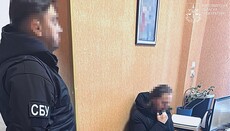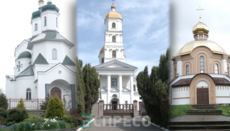Verkhovna Rada liquidates the Committee on Culture and Spirituality

The Committee on Culture and Spirituality has existed since 1991 and included a subcommittee that dealt with state policy in the field of religion.
On August 29, 2019, the Verkhovna Rada of the IX convocation, by decree No. 1077 at the first plenary meeting, liquidated the parliamentary Сommittee on Сulture and Spirituality, RISU reports.
299 deputies voted in favor of the decision to liquidate the committee, and 36 deputies voted against the decision. Another 19 abstained, and 45 did not vote.
It is reported that the Committee on Culture and Spirituality has functioned in all previous convocations of the Verkhovna Rada since 1991 but was initially called the "Committee on Culture and Spiritual Revival".
The activity of this Committee included the preparation of bills and control, mainly in the field of cultural and educational activities and state policy in the field of religion.
In the previous convocation of the Verkhovna Rada, a subcommittee on issues of state policy in the field of freedom of conscience and religious organizations, headed by Viktor Yelensky, functioned in the structure of this Committee.
Currently, religious issues are transferred to the Committee for Humanitarian and Information Policy, which is headed by the representative of the Servant of the People faction, Director General of the 1 + 1 TV channel Alexander Tkachenko.
In total, 17 people’s deputies will work in the Committee, and the majority necessary for making decisions represent the presidential faction.
Family issues are also within the new Committee’s area of competence. We are talking about the sphere of family-marriage relations, the establishment of a family institution, the provision of state assistance to families with children and the protection of street children.
Earlier, the UOJ wrote that the head of the Verkhovna Rada subcommittee on state policy in the field of freedom of conscience and religious organizations Viktor Yelensky said that autocephaly is not a matter of theology but pure politics.





